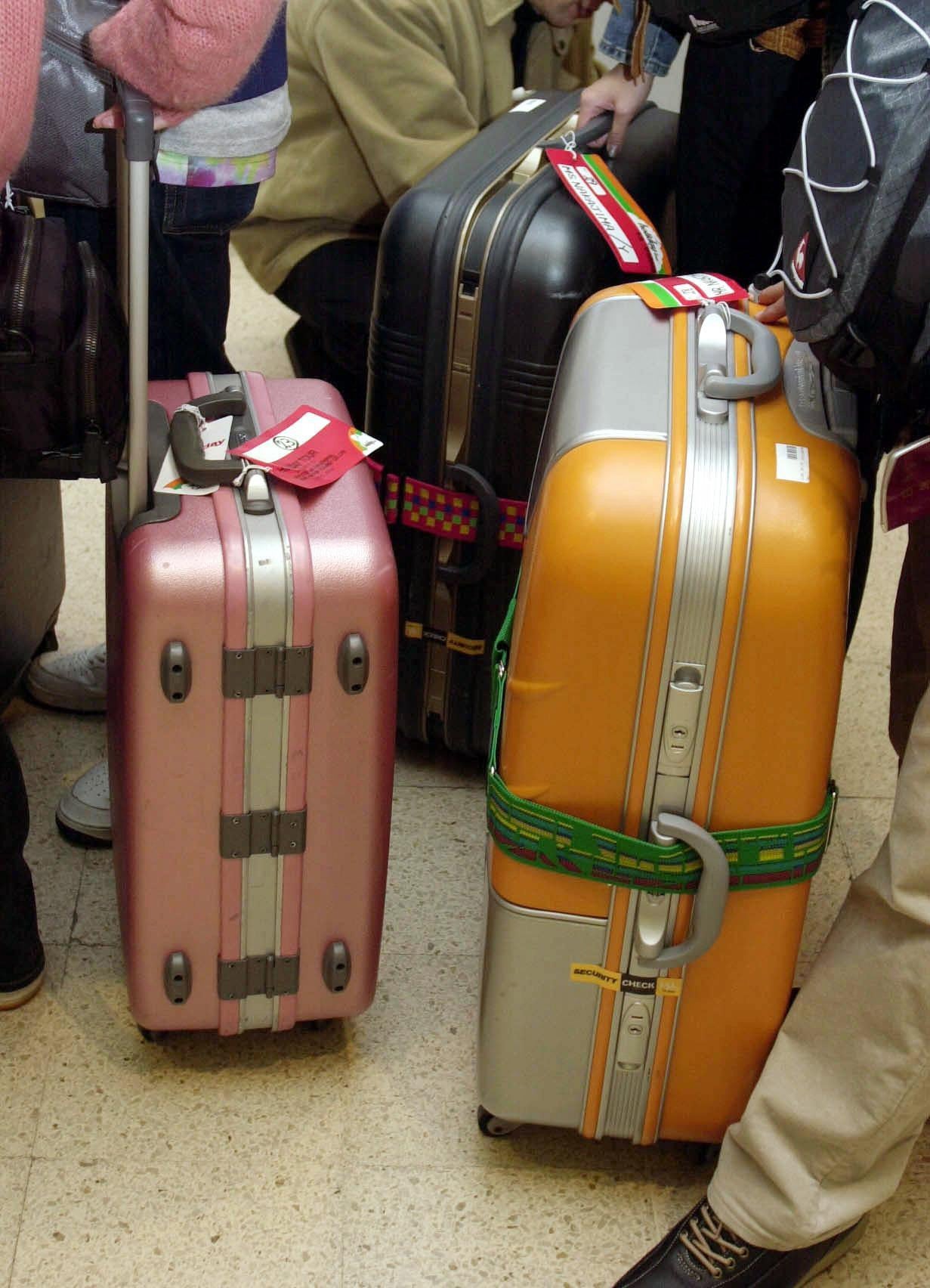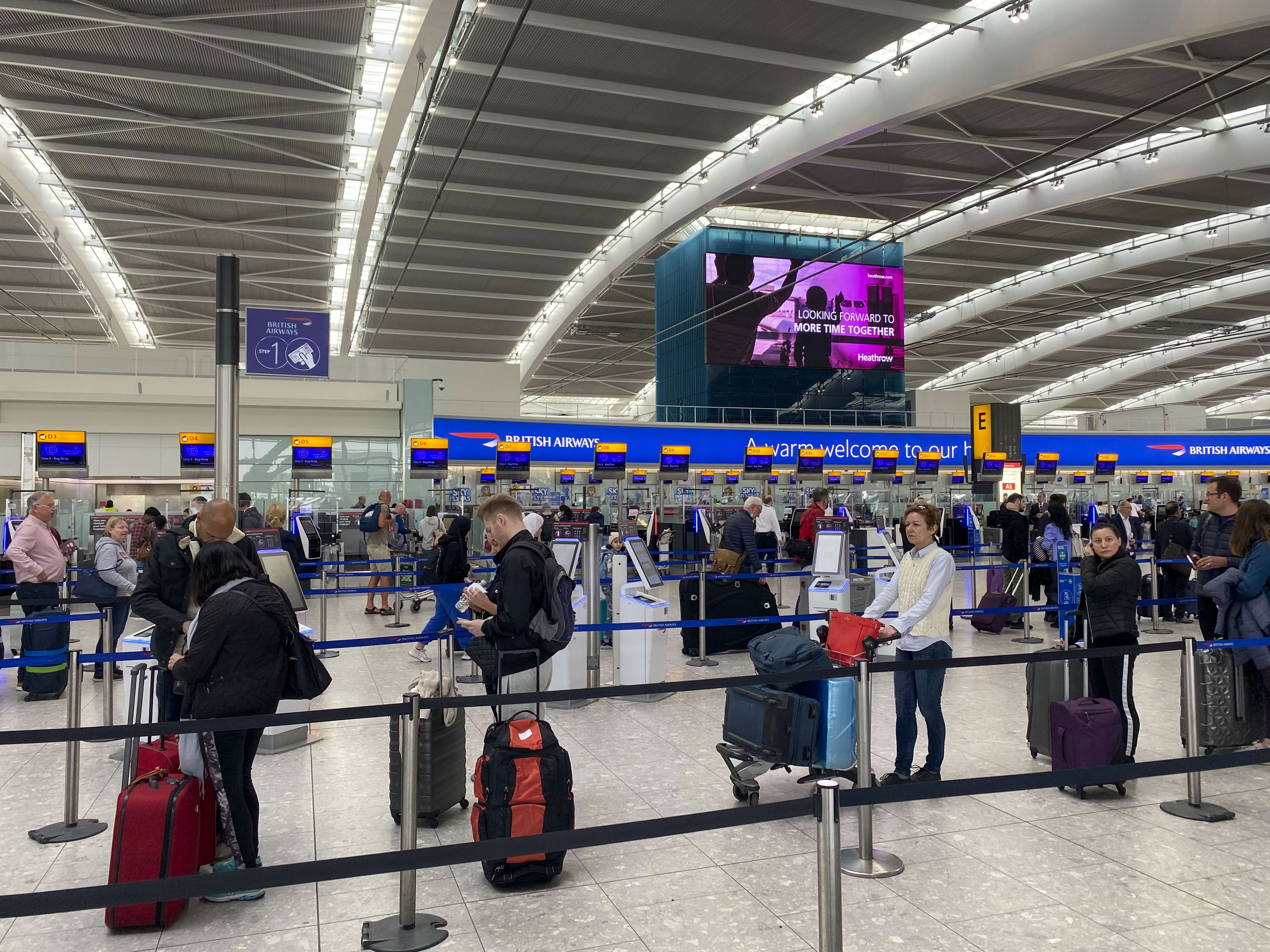
Travellers making up for time lost during the pandemic have faced a wave of delays and cancellations as they try to head abroad.
As a sign of such difficulties, London’s Gatwick Airport is reducing the number of daily flights during its busy summer period to help tackle staffing issues.
Here is what you need to know if you are flying abroad this summer.

– What should I do if my flight is cancelled?
The airline has a duty to its passengers to put them on to another flight. The airline could see if there are flights available later that day.
Paul Charles, chief executive of travel consultancy the PC Agency which advises airlines around the world, said: “If you are contacted, it is the duty of the airline to put you on to another flight that day to the same destination – whether it is with the same airline or a different firm.”
Another option could be to fly out the next day or on subsequent days, but “a lot of people are frustrated by that and may choose to cancel”, according to Mr Charles.
– Should I be thinking about trying to get a refund or compensation?
If a UK or EU-based airline changes your flight or its time, you have a right to a refund or compensation.
Mr Charles described the rules around this as “quite complex”. He said an airline may be able to claim the delay was outside of their control and they are not liable to provide compensation.
He added: “If a flight is cancelled more than two weeks before your departure date, then you are not entitled to compensation.
“If it is cancelled a week or even 24 hours before, then you are entitled to compensation.”
Many of the changes to the proposed Gatwick flights are for trips that are due to depart in the July and August summer rush.
Mr Charles said: “Many people would be given a refund or the chance of a flight at a later date. If you are travelling over the summer you now need to be on alert for whether there might be any changes to your plans.”

– How can passengers prepare so they are not left out of pocket by changes to trips?
Shopping around for travel insurance will provide a back-up that may recover the costs of cancellations rather than having to chase an airline.
Mr Charles said it is “wise” to have the right travel insurance for your needs because there may be costs linked with cancellations for which the airlines will not give compensation.
For example, if you make a separate booking – perhaps for a hotel, hire car, attractions or for a day out during your holiday – those matters may not be covered by an airline if a flight is cancelled.
The airline might only refund the cost of the flight but insurance may help in recovering the cost of other bookings you had to cancel.

– What should I do with the paperwork for the trip?
You should keep all paperwork and receipts connected with your trip abroad. This will be needed if a claim has to be made at a later date.
Some recent holidaymakers whose outbound flights arrived safely have been caught out after throwing away receipts while they were abroad, only to find their return journey to the UK had been delayed or cancelled, according to Mr Charles.
He suggests you “keep receipts for the whole of your holiday until you get back” and keep “everything in relation to the spending you are doing”. It is possible you may be able to claim back on part of a trip that has been cancelled.
– Is there anything else you can do to be a responsible passenger?
It is important to leave up-to-date contact details with the airline or tour operator you have booked through.
Correct email and contact telephone numbers will be needed if an airline needs to get in touch at short notice.
Mr Charles said: “One of the frustrations of the airlines is that a passenger may have booked but their contact details are out-of-date, and even though they may have tried they can not get in touch.
“You have certain responsibilities as a passenger and it is not fair to criticise the airline if they have the wrong information for you.”







